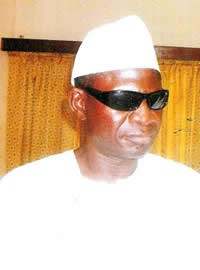Dr. Henry Seidu Daannaa, Minister of Chieftaincy and Traditional Affairs, has warned quack chiefs to stay away from the corridors of the Ministry to avoid being exposed.
He said there are many unscrupulous individuals who parade themselves as “chiefs” at the Ministry, but have no legal documentation, warning that “the Ministry will not tolerate such people.”
He said the chieftaincy institution was a noble one, therefore, his outfit would not allow some disgruntled elements to tarnish its image.
Dr. Seidu Daannaa gave the warning during interaction with members of the Ahanta Traditional Council at Busua in the Western Region, as part of his five-day working visit to the region.
The visit was intended to afford the sector minister the opportunity to have knowledge of issues militating against the chieftaincy institution in the country, as well as share government policies with them to promote peace and harmony.
He said his doors were always open for meaningful and constructive suggestions from recognized chiefs that would enhance chieftaincy governance in the country.
Dr. Daannaa noted that the Ministry was steadily progressing with the codification of the line of succession of the various traditional areas across the country.
This, he said, would go a long way to minimize litigation and conflicts that often characterized successions.
He stressed government’s commitment to re-position the chieftaincy institution to contribute meaningfully towards national development.
The minister said the chieftaincy institution played an invaluable role in governance, and therefore, government would always seek their concerns in decision-making to come out with holistic policies to accelerate national development.
He said the Chieftaincy Ministry would continue to bridge the gap between government and tradition, and asked for the co-operation of chiefs to achieve set goals.
He said the Ministry was dealing with staffing situation at the traditional councils, and would post personnel from the headquarters to districts and traditional councils where their services were most needed.
Members of the Ahanta Traditional Council appealed to government to return stool lands which were acquired by the state in the 1960s, but were not used for the intended purposes.
They made a further appeal to government to impress on the Dutch government to build a mausoleum for the traditional council to keep the head of their late paramount chief, Otumfuo Baidoo Bonsu the second, who was beheaded by the Dutch, for his resistance against slave trade and colonialism.
Regional News of Friday, 16 May 2014
Source: GNA
Chieftaincy Ministry will not tolerate quack chiefs - Dr. Seidu Daannaa

















